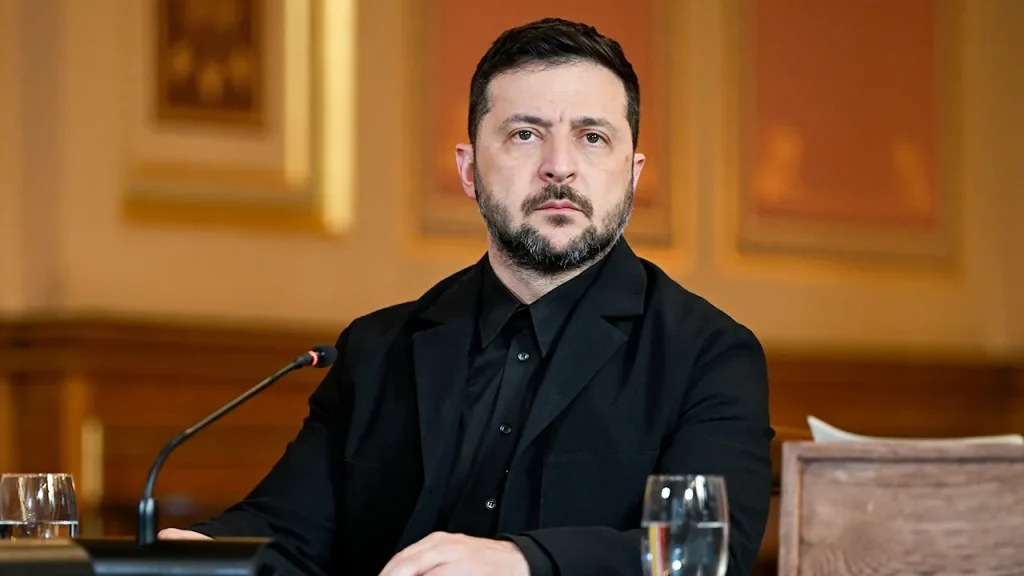Zelenskyy Launches Energy Sector Reform Amid Corruption Scandal and War Challenges
In a bold move addressing both internal corruption and external threats, Ukrainian President Volodymyr Zelenskyy announced comprehensive plans to reform the nation’s energy sector on Sunday. Meeting with Prime Minister Yulia Svyrydenko, Zelenskyy outlined a series of initiatives aimed at rooting out corruption and Russian influence while strengthening Ukraine’s energy infrastructure amidst the ongoing war. The president called for leadership changes at key regulatory bodies including the State Nuclear Regulatory Inspectorate and the State Energy Supervision Inspectorate, demonstrating his commitment to transparency in a sector vital to Ukraine’s national security and economic stability. This energy sector cleanup comes at a critical moment as Ukraine continues to face Russian attacks on its infrastructure while simultaneously battling internal governance challenges that threaten to undermine international support.
The reform announcement follows a major corruption scandal involving Tymur Mindich, once a business partner of Zelenskyy, who was identified by Ukrainian anti-corruption watchdogs as the alleged mastermind behind a $100 million embezzlement scheme involving the country’s nuclear energy sector. According to investigators, Mindich allegedly established a network of loyalists who pressured contractors for Energoatom, Ukraine’s state-owned nuclear power company, demanding kickbacks as high as 15% to navigate bureaucratic processes. Prior to these allegations coming to light, concerns had been raised about Mindich’s growing influence across Ukraine’s lucrative industries, access believed to stem from his connections to the president. While Zelenskyy himself was not implicated in the investigation, the scandal highlighted vulnerabilities in the oversight of critical infrastructure and state-owned enterprises that have now prompted this sweeping response.
As part of the cleanup initiative, Zelenskyy directed lawmakers to “ensure the renewal of the Asset Recovery and Management Agency” with instructions to complete the selection process for a new agency head before year’s end. This organizational overhaul extends to Russian-linked assets as well, with the president calling for prompt audits of “assets and shares in assets that belonged to Russian entities and to collaborators who fled to Russia.” His directive was clear and purpose-driven: “All such assets must operate one hundred percent in Ukraine’s interests – to support our defense and to contribute to Ukraine’s budget.” These measures represent not just anti-corruption efforts but also strategic economic warfare against Russia, reclaiming resources that could otherwise benefit Ukraine’s adversary while bolstering the nation’s war-strained finances.
Beyond domestic reforms, Zelenskyy has announced intensive diplomatic efforts aimed at building international support and potentially creating pathways toward peace. “We are working to ensure another start to negotiations,” the president stated regarding potential talks to end the conflict with Russia. His team is also pursuing the resumption of prisoner of war exchanges, noting that “many meetings, negotiations, and calls are currently taking place to ensure this.” These diplomatic initiatives come at a time when Ukraine faces significant battlefield challenges and uncertainty about long-term international support, particularly following political changes in key allied nations. The president’s emphasis on both fighting corruption at home while maintaining diplomatic momentum abroad reflects his understanding that Ukraine’s survival depends on both internal strength and external alliances.
The week ahead promises to be one of intensive international engagement, with Zelenskyy preparing to visit Greece, France, and Spain in quick succession. Sunday’s meeting in Greece will focus on natural gas imports, addressing Ukraine’s energy security needs as winter approaches and Russian attacks on energy infrastructure continue. The subsequent visits to France on Monday and Spain on Tuesday will center on strengthening Ukrainian air defenses, a critical need as Russia continues to target civilian infrastructure throughout the country. These visits represent Zelenskyy’s ongoing strategy of personal diplomacy, making direct appeals to European partners at a time when attention to Ukraine’s cause risks being diverted by other global conflicts and domestic political concerns within allied nations.
The dual challenges of fighting corruption at home while defending against Russian aggression abroad have defined Zelenskyy’s presidency, with the energy sector reforms highlighting this complex balancing act. By addressing corruption scandals promptly and publicly, Zelenskyy aims to maintain the confidence of international supporters who have provided billions in financial and military aid. At the same time, his diplomatic outreach and push to resume peace negotiations demonstrate pragmatic recognition of Ukraine’s difficult strategic position entering the third year of full-scale war. As winter approaches, bringing renewed concerns about energy security and civilian hardship, these reforms and diplomatic initiatives reflect a president fighting on multiple fronts—against corruption, against Russian aggression, and against the risk of waning international attention to Ukraine’s existential struggle for sovereignty and survival.















